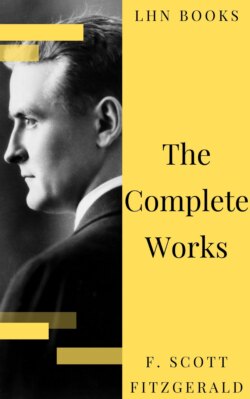Читать книгу The Complete Works of F. Scott Fitzgerald - F. Scott Fitzgerald - Страница 150
На сайте Литреса книга снята с продажи.
II.
ОглавлениеSamuel became the sort of college student who in the early nineties drove tandems and coaches and tallyhos between Princeton and Yale and New York City to show that they appreciated the social importance of football games. He believed passionately in good form—his choosing of gloves, his tying of ties, his holding of reins were imitated by impressionable freshmen. Outside of his own set he was considered rather a snob, but as his set was the set, it never worried him. He played football in the autumn, drank high-balls in the winter, and rowed in the spring. Samuel despised all those who were merely sportsmen without being gentlemen, or merely gentlemen without being sportsmen.
He lived in New York and often brought home several of his friends for the week-end. Those were the days of the horse-car and in case of a crush it was, of course, the proper thing for any one of Samuel’s set to rise and deliver his seat to a standing lady with a formal bow. One night in Samuel’s junior year he boarded a car with two of his intimates. There were three vacant seats. When Samuel sat down he noticed a heavy-eyed laboring man sitting next to him who smelt objectionably of garlic, sagged slightly against Samuel and, spreading a little as a tired man will, took up quite too much room.
The car had gone several blocks when it stopped for a quartet of young girls, and, of course, the three men of the world sprang to their feet and proffered their seats with due observance of form. Unfortunately, the laborer, being unacquainted with the code of neckties and tallyhos, failed to follow their example, and one young lady was left at an embarrassed stance. Fourteen eyes glared reproachfully at the barbarian; seven lips curled slightly; but the object of scorn stared stolidly into the foreground in sturdy unconsciousness of his despicable conduct. Samuel was the most violently affected. He was humiliated that any male should so conduct himself. He spoke aloud.
“There’s a lady standing,” he said sternly.
That should have been quite enough, but the object of scorn only looked up blankly. The standing girl tittered and exchanged nervous glances with her companions. But Samuel was aroused.
“There’s a lady standing,” he repeated, rather raspingly. The man seemed to comprehend.
“I pay my fare,” he said quietly.
Samuel turned red and his hands clinched, but the conductor was looking their way, so at a warning nod from his friends he subsided into sullen gloom.
They reached their destination and left the car, but so did the laborer, who followed them, swinging his little pail. Seeing his chance, Samuel no longer resisted his aristocratic inclination. He turned around and, launching a full-featured, dime-novel sneer, made a loud remark about the right of the lower animals to ride with human beings.
In a half-second the workman had dropped his pail and let fly at him. Unprepared, Samuel took the blow neatly on the jaw and sprawled full length into the cobblestone gutter.
“Don’t laugh at me!” cried his assailant. “I been workin’ all day. I’m tired as hell!”
As he spoke the sudden anger died out of his eyes and the mask of weariness dropped again over his face. He turned and picked up his pail. Samuel’s friends took a quick step in his direction.
“Wait!” Samuel had risen slowly and was motioning them back. Some time, somewhere, he had been struck like that before. Then he remembered—Gilly Hood. In the silence, as he dusted himself off, the whole scene in the room at Andover was before his eyes—and he knew intuitively that he had been wrong again. This man’s strength, his rest, was the protection of his family. He had more use for his seat in the street-car than any young girl.
“It’s all right,” said Samuel gruffly. “Don’t touch him. I’ve been a damn fool.”
Of course it took more than an hour, or a week, for Samuel to rearrange his ideas on the essential importance of good form. At first he simply admitted that his wrongness had made him powerless—as it had made him powerless against Gilly—but eventually his mistake about the workman influenced his entire attitude. Snobbishness is, after all, merely good breeding grown dictatorial; so Samuel’s code remained, but the necessity of imposing it upon others had faded out in a certain gutter. Within that year his class had somehow stopped referring to him as a snob.
